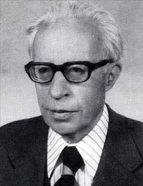

After his pioneering study in Experimental Psychology, it was critical, speculative and hermeneutic enquiry that motivated him, that is, in his own words, to go from ‘história de um pensamento que se procura’ for which he would engage with a) the great cultural and epistemological debates in Europe and wide areas of the history of philosophy (Ensaio sobre a ética de Guyau), exploring b) the historicity of concepts (O problema da recognição, 1928), not specifically historiographical, but philosophical and psychological, in the heated contest between physiologism on the one hand and the tricky ahistorical psychologism of Bergson on the other.
Furthermore, we owe to Sílvio Lima c) the first rigorous outline of the História da Psicologia em Portugal (1949) and d) the well-grounded critical survey of the reception (and position) of positivism in Portugal. His desire to explore the intrinsic novelty of the epistemological gaps that the return to the philosophy of the subject made possible would lead him to e) complex essays of the kind characteristic of António Sérgio and the Seara Nova, especially in the anthropology and sociology of sport (Ensaios sobre o Desporto, 1937; Desporto, Jogo e Arte, 1938; Desportismo professional. Desporto, trabalho e profissão, 1939) and later to theorizing essayism itself (Serão luxos a Ciência e a Arte?, 1940), about which he would write a work of reference that surely remained the most important in the Iberian languages until the 1980s (Ensaio sobre a essência do ensaio, 1944; 2nd edn 1964).
And one of the best texts of that time also came from his pen, f) making an evaluation of the wholesale laicization of the arts of philosophy and history, in their confrontation with the Freudian sexualmonismus, creating an ample historical, theoretical and empirical basis for building an Anthropology and Psychology of religions (O Amor místico, 1935) and for an understanding of the difficult secularization and laicization of the intelligentsia in the face of the growing and ubiquitous reclericalization of society and university, under the repressive and anti-modern cloak of the dictatorship and its pragmatic confessionalism (Notas críticas, 1930; 2nd edn 1931). It is not surprising, therefore, that, on the civic level of the democratic opposition, he should attack the autotelic and autistic vision of the Estado Novo (in his courageous confrontation with the fascist advance in Europe), and with Raul Proença deconstruct the political panlogism, the politique d’abord conjugated in the most disparate idioms, as a private and totalizing dialect (Quatro cartas sobre o idealismo, 1936).
